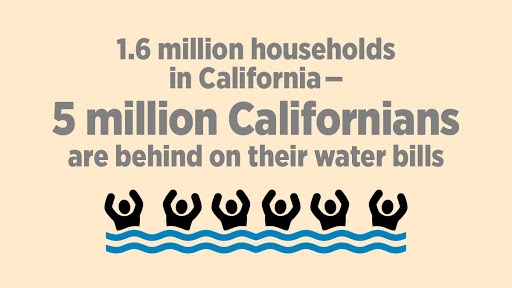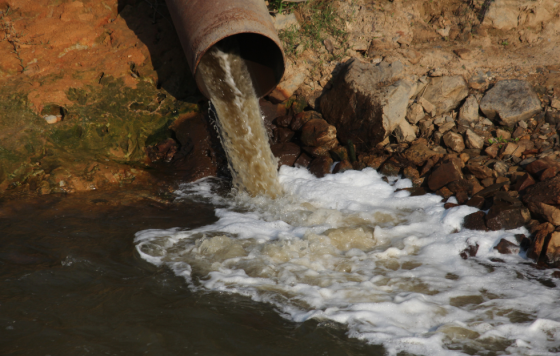
I joined Clean Water Action almost a year ago in March, at the beginning of the pandemic and the first shelter in place order in California. At the time, there was (and still is) a lot of uncertainty about the future and the extent to which our current ways of being and systems would be impacted. I came into this work with a background in environmental justice and intersectional approach to social, racial, and environmental issues. Although I understood that the inequalities that existed in accessing safe, clean, and affordable water would be compounded by this new health crisis, I would soon realize the work that lay ahead to ensure continued access to water for communities.

I was able to take part in the collective mobilization of water advocates to bring attention to the issue and needed action. Not only is water a human right but is essential for the most basic form of protection against COVID-19, washing your hands. One of the first campaigns I worked on was urging Governor Newsom to take immediate action to protect vulnerable communities, including implementing a statewide moratorium on water shutoffs.
It was great news last April when Governor Newsom issued an Executive Order banning water shutoffs for the duration of the COVID-19 pandemic state of emergency. However, it was clear that this was a temporary measure. At some point, the moratorium will be lifted. The question then is what will happen to financially impacted families that have been struggling or unable to pay for basic needs such as their water bill?
Understanding that there were challenges to come, we continued to work with allies to get a better grasp on shutoffs and the impact of the moratorium on households and water utilities. Over the summer, in collaboration with the Natural Resources Defense Council (NRDC), we submitted Public Record Act (PRA) requests to water systems with the most reported water shut-offs. Although we received inconsistent responses from the selected water systems, we gained valuable insight on implementation of the moratorium and the number of shut-offs that had occurred prior to the Governor’s executive order. We were also able to get a glimpse of the fees and penalities added to past due water bills. It it became clear that with each passing month, water debt would continue to accumulate for families across the state.
According to recent State Water Board survey data, California households are drowning in nearly $1 billion in water debt. This impacts 1.6 million households, about 5 million Californians. The survey also found that low-income communities of color are burdened with disproportionately high water debt. Not only is this a matter of public health but a racial justice issue as these same low-income communities of color have been disproportionately impacted by the pandemic on multiple fronts.
It’s important to acknowledge that the issue of water access and affordability existed before the pandemic but as with many systemic inequities, COVID-19 has emphasized the disparities that impact the safety & well-being of our communities. The need to ensure universal water access and infrastructure is critical for an equitable covid recovery. As part of our legislative campaign Affordable Water for All, Clean Water Action is co-sponsoring Senate Bill 222 that would establish a statewide low-income rate assistance program for water utilities and Senate Bill 223 that would prohibit shutoffs during emergencies and extend existing protections to communities served by small water systems. These are comprehensive pieces of water affordability legislation, addressing the issue of water debt on a household level and the need to support water systems that have been financially impacted. We have also worked on securing federal funding from Congress to support water affordability and infrastructure needs for Californian communities.
As I come up on my first year, I look back at all that I have learned about the history and progress in ensuring safe, affordable water in California. I look forward to advocating and working in coalition with community and water justice organizations to advance solutions on a structural and systemic level that address the needs of communities now and into the future.
Be part of the movement and action to address this water affordability crisis. As the legislative session progresses, we will need your support! Keep an eye out for calls to action to let your Senator know that you support legislation that will protect households and water systems at risk. For updates on and news on water affordability make sure to follow us on Twitter at @cleanh20ca and check out the Water Affordability for CA coalition page here!


